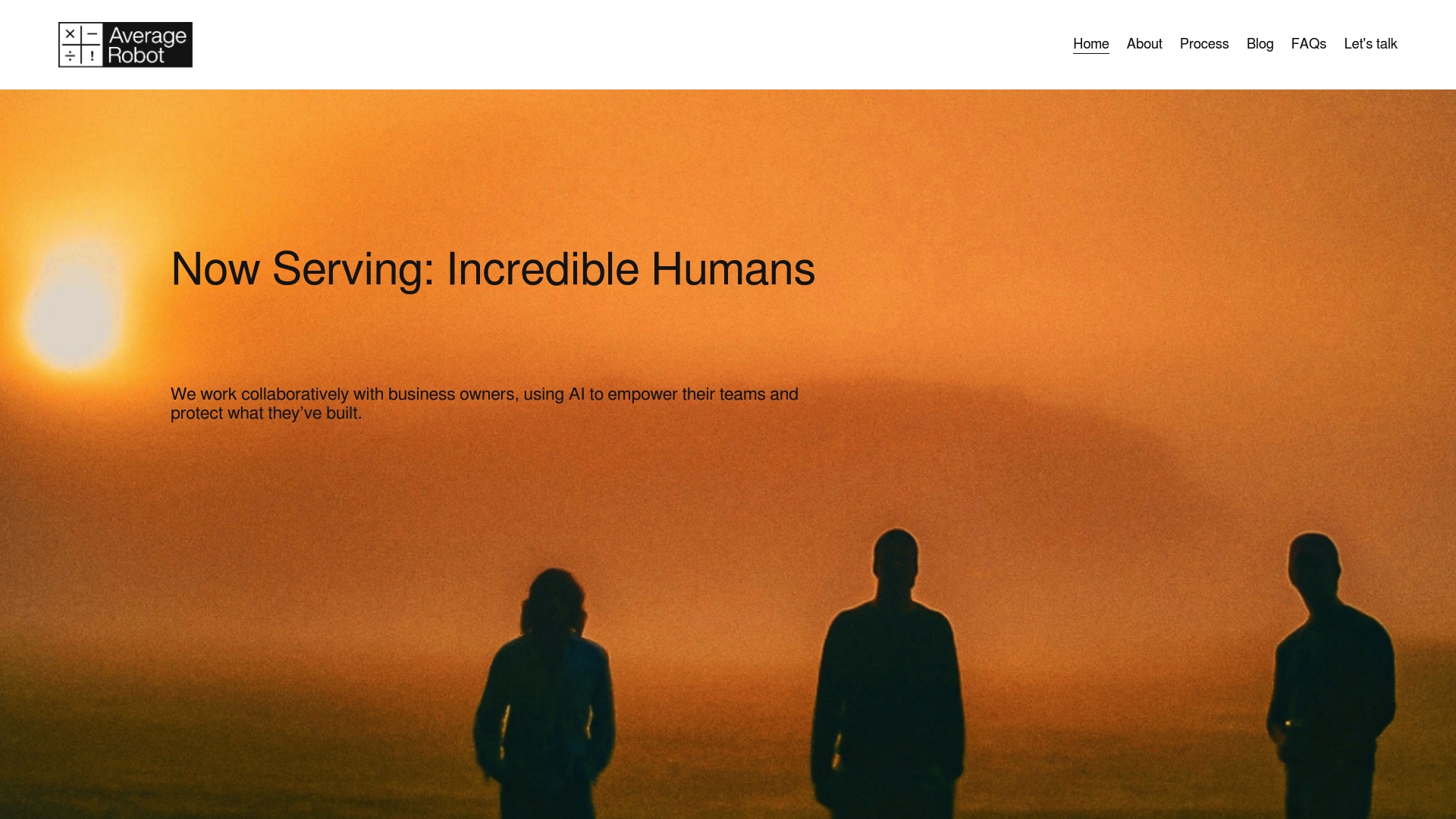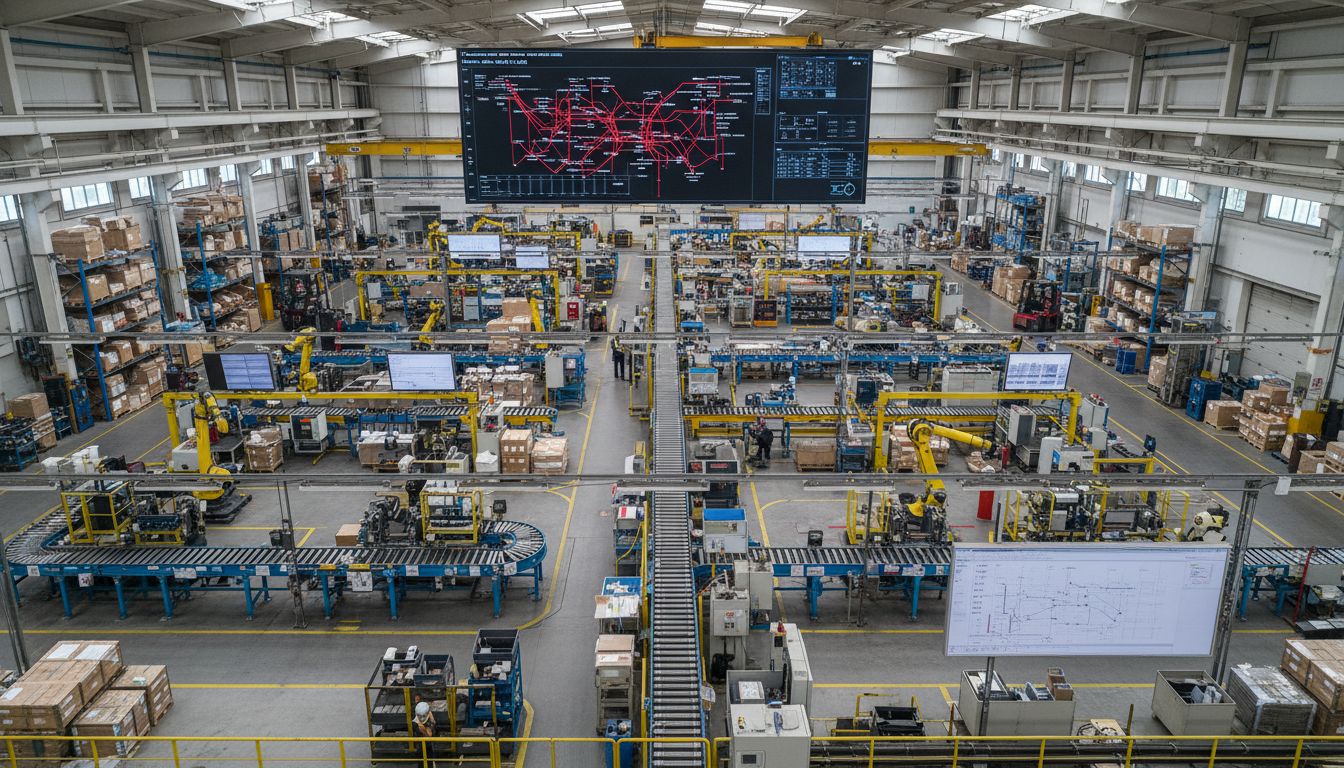Understanding the Role of Humans in AI Integration

Everyone talks about AI racing ahead, reshaping companies and daily life. But get this. AI systems only work because humans guide every step, from designing strategy to setting ethical rules. Most people think the machines are in charge, yet the real power lies in the hands of those behind the scenes. Turns out, human expertise shapes what AI can actually do and keeps it from spinning out of control.
Table of Contents
- What Is The Role Of Humans In AI Development?
- Why Human Input Is Crucial For Effective AI Systems?
- How Do Humans Enhance AI Decision-Making?
- The Significance Of Ethical Considerations In AI
- What Skills Are Needed For Humans To Work Alongside AI?
Quick Summary
| Takeaway | Explanation |
|---|---|
| Humans shape AI’s intelligence and capabilities | Human expertise is necessary for conceptualizing, training, and fine-tuning AI systems to meet specific goals. |
| Ethics are essential in AI development | Establishing ethical frameworks ensures AI technologies align with human values and accountability throughout their lifecycle. |
| AI requires continuous human oversight | Continuous validation and adjustment by humans prevent AI from making biased or harmful decisions. |
| Collaborative strategies enhance human-AI integration | Viewing AI as a partner boosts innovation and efficiency, leveraging human strengths alongside technological capabilities. |
| Skill development is vital for future professionals | Professionals should cultivate critical thinking, ethical awareness, and a mindset for continuous learning to effectively work with AI systems. |
What is the Role of Humans in AI Development?
Humans remain the critical architects and strategic guides in AI development, far beyond simple programming or monitoring. The role of humans in AI is fundamentally about strategic design, ethical implementation, and maintaining meaningful control over technological systems.
Strategic Intelligence Design
AI systems do not spontaneously generate intelligence. They require human expertise to conceptualize, train, and refine their capabilities. Business owners and technical professionals must actively shape AI’s learning parameters, ensuring that machine learning algorithms align with specific organizational goals and ethical standards.
According to research from the National Science Foundation, human involvement is crucial in training AI systems to perceive and interpret complex scenarios accurately. This means humans must continuously validate and adjust AI outputs, preventing potential misinterpretations or biased decision making.
The following table summarizes the distinct roles humans play in the development, integration, and oversight of AI systems, highlighting how each function contributes to effective and ethical artificial intelligence.
| Human Role | Description |
|---|---|
| Strategic Intelligence Design | Defining goals, training parameters, and aligning AI with organizational objectives; ensuring the system remains purposeful and meaningful. |
| Ethical Oversight and Control | Creating governance frameworks, monitoring unintended consequences, and protecting privacy and data rights. |
| Collaborative Intelligence | Leveraging human creativity, problem-solving, and context to complement machine efficiency for innovative solutions. |
| Error Prevention | Continuously validating AI outputs to catch and correct misinterpretations and biased decisions. |
| Strategic Refinement | Regular updates, training, and fine-tuning based on experience and organizational changes for optimal system performance. |
| Accountability Enforcement | Establishing transparency and clear protocols to ensure responsible and fair use throughout the AI lifecycle. |
Ethical Oversight and Control
The human role extends far beyond technical implementation. Professionals must establish robust governance frameworks that ensure AI technologies operate within predefined ethical boundaries. This involves:
- Establishing clear algorithmic accountability
- Monitoring potential unintended consequences
- Implementing transparent decision making processes
- Protecting individual privacy and data rights
Business leaders are not passive observers but active participants in directing AI’s trajectory. They must critically assess how artificial intelligence can augment human capabilities without replacing human judgment.
Collaborative Intelligence Strategy
Successful AI integration is not about replacement but strategic collaboration between human expertise and machine efficiency. Humans bring nuanced understanding, contextual intelligence, and creative problem solving that current AI systems cannot replicate.
By maintaining strategic control, business owners can leverage AI as a powerful tool that amplifies human potential rather than diminishing it. The most effective AI implementations view technology as an extension of human capability, not a substitute for human thinking.
Why Human Input is Crucial for Effective AI Systems?
AI systems are powerful technological tools, but they are not autonomous entities capable of independent reasoning. Human input transforms AI from a complex algorithm into a meaningful business solution, providing essential context, ethical guidance, and strategic direction.
Contextual Intelligence and Nuanced Understanding
Machine learning algorithms operate on data patterns, but they lack the profound understanding that human professionals bring to complex scenarios. Humans provide critical contextual layers that enable AI to interpret information beyond raw numerical inputs. Business owners understand intricate market dynamics, customer behaviors, and organizational culture in ways algorithms cannot independently replicate.
Research from Duke University’s Pratt School of Engineering demonstrates how human feedback enables AI systems to become more responsive and adaptable, highlighting the symbiotic relationship between technological capabilities and human insight.
Error Prevention and Ethical Alignment
AI systems are susceptible to significant limitations without human oversight. These potential issues include:
- Misinterpreting complex contextual signals
- Perpetuating historical biases embedded in training data
- Making decisions without understanding broader implications
- Lacking empathy and emotional intelligence
Human professionals serve as critical gatekeepers, ensuring AI technologies remain aligned with organizational values, legal requirements, and ethical standards. They provide the necessary critical thinking to validate and refine AI outputs, preventing potentially costly mistakes.
Strategic Customization and Continuous Learning
Effective AI implementation is not about replacing human expertise but augmenting and extending organizational capabilities. Business leaders must actively guide AI development, tailoring technological solutions to specific operational needs. This involves continuous monitoring, strategic adjustments, and ensuring that AI remains a flexible, responsive tool.
By maintaining active human involvement, organizations transform AI from a generic technological solution into a precision instrument that delivers targeted, meaningful insights. The most successful AI integrations view technology as a collaborative partner, not an autonomous replacement for human intelligence.
How do Humans Enhance AI Decision-Making?
Human intelligence transforms AI from a computational tool into a strategic asset, enabling more nuanced, contextually aware, and ethically grounded decision-making processes. Humans do not just program AI systems they actively shape their cognitive capabilities and operational effectiveness.
Contextual Intelligence and Adaptive Learning
AI algorithms process data efficiently, but they lack the profound interpretative skills humans inherently possess. Business professionals provide critical contextual layers that help AI systems understand complex scenarios beyond pure numerical analysis. This involves translating raw data into meaningful insights by incorporating industry knowledge, market trends, and organizational culture.
Research from the National Science Foundation highlights the importance of developing behavior-aware AI systems that can adapt to human decision-making patterns, creating more collaborative and intelligent technological solutions.
Ethical Oversight and Bias Mitigation
Humans play a crucial role in preventing and correcting potential AI biases. Key interventions include:
- Identifying and removing historical prejudices in training data
- Establishing transparent decision-making frameworks
- Ensuring algorithmic fairness across different demographic groups
- Maintaining accountability for AI-generated recommendations
Professionals serve as ethical guardians, continuously monitoring AI systems to ensure they make decisions aligned with organizational values and societal standards. This human oversight prevents potentially discriminatory or harmful automated decisions.

Strategic Refinement and Continuous Improvement
Successful AI integration is not a one-time implementation but an ongoing collaborative process. Business leaders must actively guide AI development, treating machine learning systems as dynamic tools that require constant refinement. This involves:
- Regularly updating training datasets
- Conducting performance evaluations
- Adjusting algorithmic parameters
- Integrating new domain expertise
By maintaining an active human-AI partnership, organizations transform artificial intelligence from a generic technological solution into a precision instrument that delivers targeted, meaningful insights. The most effective AI implementations view technology as an intelligent collaborator, not an autonomous decision-maker.
The Significance of Ethical Considerations in AI
Ethical considerations are not optional add-ons but fundamental requirements in AI development, transforming technological capabilities from potentially harmful tools into responsible, trustworthy solutions that respect human dignity and societal values.
Protecting Human Rights and Dignity
AI systems have profound potential to impact individual lives, making ethical frameworks critical for preventing unintended negative consequences. Business leaders must prioritize human-centric design that preserves individual autonomy, privacy, and fundamental rights. This means creating AI technologies that enhance human capabilities without compromising personal freedoms or perpetuating systemic inequalities.
According to UNESCO’s Recommendation on the Ethics of Artificial Intelligence, ethical AI development requires comprehensive oversight ensuring technologies respect human rights throughout their entire lifecycle.
Preventing Algorithmic Bias and Discrimination
Uncontrolled AI systems can inadvertently perpetuate and amplify existing societal prejudices. Key ethical challenges include:
- Recognizing and mitigating historical data biases
- Ensuring fair representation across demographic groups
- Creating transparent decision-making processes
- Implementing accountability mechanisms
Ethical AI demands proactive intervention, requiring professionals to continuously audit algorithms for potential discriminatory patterns. This involves developing sophisticated frameworks that go beyond surface-level diversity metrics to address deeper structural inequities.
Establishing Organizational Accountability
Ethical AI integration is not just a technological challenge but a fundamental organizational commitment. Businesses must develop comprehensive governance structures that embed ethical considerations into every stage of AI development and deployment. This means creating clear protocols for:
- Regular ethical audits
- Transparent reporting mechanisms
- Ongoing staff training
- Interdisciplinary oversight committees
By treating ethics as a core design principle rather than an afterthought, organizations can build AI systems that are not just technologically advanced but fundamentally responsible. The most successful AI implementations recognize that technological capability means nothing without a robust ethical foundation that prioritizes human well-being.

What Skills Are Needed for Humans to Work Alongside AI?
Working alongside AI requires a sophisticated blend of technical understanding, emotional intelligence, and strategic thinking. Professionals must evolve from traditional roles to become collaborative partners with technological systems, transforming how organizations leverage intelligent technologies.
Cognitive Flexibility and Adaptive Learning
Successful human-AI collaboration demands dynamic cognitive capabilities that extend beyond traditional skill sets. Business professionals must develop the ability to interpret, guide, and critically assess AI-generated insights. This involves cultivating a mindset of continuous learning, where technological adaptation becomes as natural as breathing.
Research from Pew Research Center highlights the critical importance of developing analytical skills like scientific reasoning, mathematical thinking, and programming literacy to effectively interact with AI systems.
Strategic Skill Development
Professionals must acquire a comprehensive skill set to thrive in an AI-integrated workplace. Key competencies include:
- Advanced critical thinking capabilities
- Complex problem-solving techniques
- Emotional intelligence and empathy
- Ethical decision-making frameworks
- Creative interpretation of technological outputs
- Interdisciplinary collaboration skills
Human expertise now centers on providing context, nuance, and strategic direction that AI algorithms cannot independently generate. This means developing capabilities that complement machine intelligence rather than competing with it.
Ethical Technology Management
Working alongside AI requires robust ethical competence. Professionals must become sophisticated technology stewards who can:
- Understand AI system limitations
- Identify potential algorithmic biases
- Implement responsible AI governance
- Translate complex technological concepts
- Maintain human-centric technological implementations
The most successful professionals will view AI as a powerful collaborative tool, not a replacement for human intelligence. By developing these sophisticated skills, business leaders can transform technological integration from a potential threat into a remarkable opportunity for organizational growth and innovation.
This table outlines the essential skills professionals need to effectively collaborate with AI systems, emphasizing capabilities that complement and enhance technology-driven workplaces.
| Skill Area | Description |
|---|---|
| Cognitive Flexibility | Adapting quickly to new technology and continuously learning amidst changing systems. |
| Critical Thinking | Analyzing AI outputs, interpreting data, and questioning results to make sound decisions. |
| Emotional Intelligence | Understanding and responding to human contexts that AI may overlook. |
| Ethical Decision-Making | Navigating the responsible use of AI, ensuring system alignment with societal norms and legal standards. |
| Technical Understanding | Applying programming, data science, and scientific reasoning to guide and interpret AI system behavior. |
| Interdisciplinary Collaboration | Combining expertise from different domains to create more comprehensive, robust AI solutions and oversee their deployment. |
Take Control of AI Integration with Human-Centered Strategy
If reading about the critical role of humans in AI left you feeling both inspired and slightly unsure about your next steps, you are not alone. Many business leaders struggle to align AI systems with their unique organizational goals and fear losing control or encountering ethical pitfalls. This article highlighted the strategic importance of human input, ethical oversight, and collaborative intelligence for successful AI adoption—issues that often stall growth and innovation in businesses just like yours.

Ready to transform AI from a daunting concept into your next competitive advantage? At Average Robot, we serve as your dedicated AI Council, delivering step-by-step guidance, tailored automations, and proven change management support. Let our experts help you set up your own strategic roadmap so that technology becomes your business ally, not a replacement for your team. Visit Average Robot today to discover how your organization can lead the future of human-driven, ethical, and effective AI. Don’t wait—get ahead of your competition and simplify your AI journey now.
Frequently Asked Questions
What is the importance of human input in AI development?
Human input is crucial in AI development as it transforms AI from a complex algorithm into a meaningful business solution. Humans provide essential context, ethical guidance, and strategic direction, ensuring the AI systems align with organizational goals and ethical standards.
How do humans enhance AI decision-making?
Humans enhance AI decision-making by providing contextual intelligence and adaptive learning. They shape AI capabilities and operational effectiveness, ensuring decisions consider nuanced scenarios that algorithms alone cannot interpret.
What skills are important for humans working alongside AI?
Key skills include cognitive flexibility, advanced critical thinking, emotional intelligence, and ethical decision-making. Professionals must develop competencies that complement AI and enhance collaborative efforts, transforming technology into a powerful partner.
Why are ethical considerations critical in AI integration?
Ethical considerations are fundamental in AI integration as they prevent potential negative consequences, protect human rights, and ensure that AI systems operate with fairness and accountability. An ethical framework guides organizations in building responsible AI technologies.




